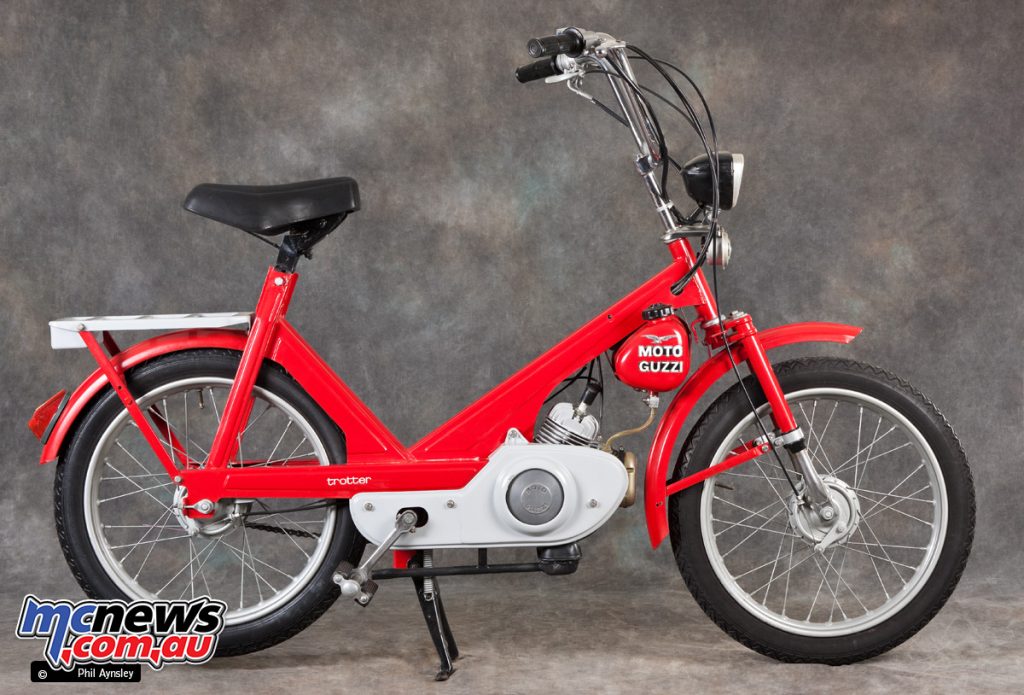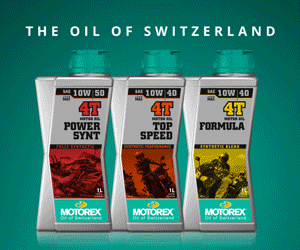1966 Moto Guzzi Dingo GT two-stroke
With Phil Aynsley
Say ‘Moto Guzzi’ and which bikes spring to mind? Big transverse V-twins? Maybe, if you are of a certain age, horizontal four-stroke singles? What about tiddler two-strokes?
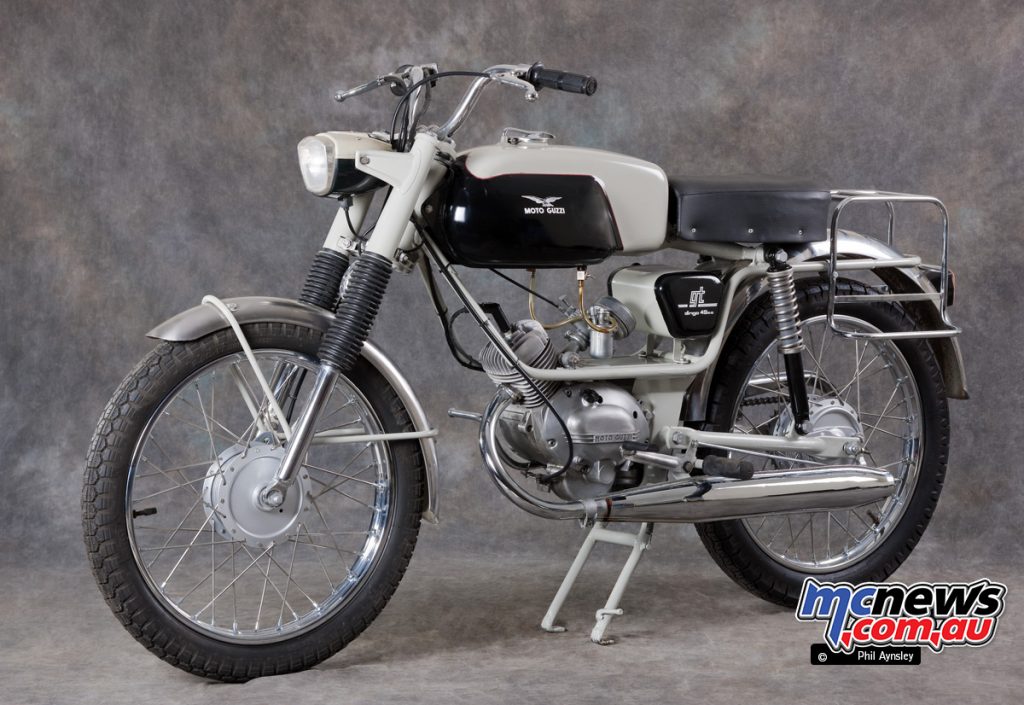
The company had introduced its first two-stroke design, the 65cc Motoleggera (better known as the Guzzino) in 1946 – of which over 70,000 were produced, until it was superseded by the similar Cardellino in 1954. It, in turn, was manufactured until 1963 to the tune of some 144,000 bikes.
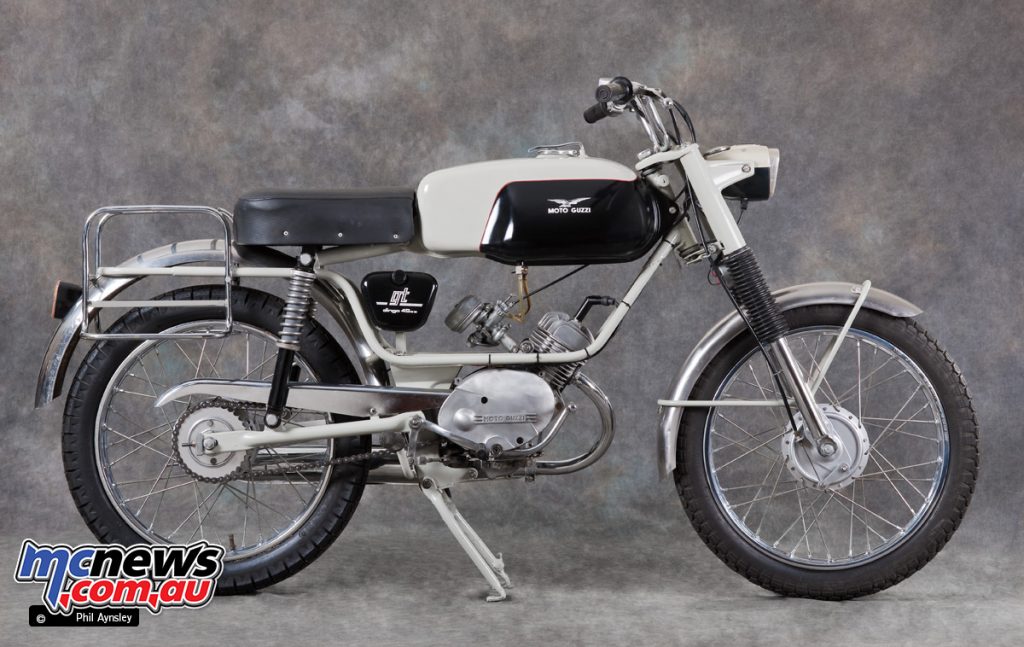
So the company certainly had impressive two-stroke experience. The two bikes seen here represent Guzzi’s efforts to embrace the swinging ’60s youth market with low cost entry level models.
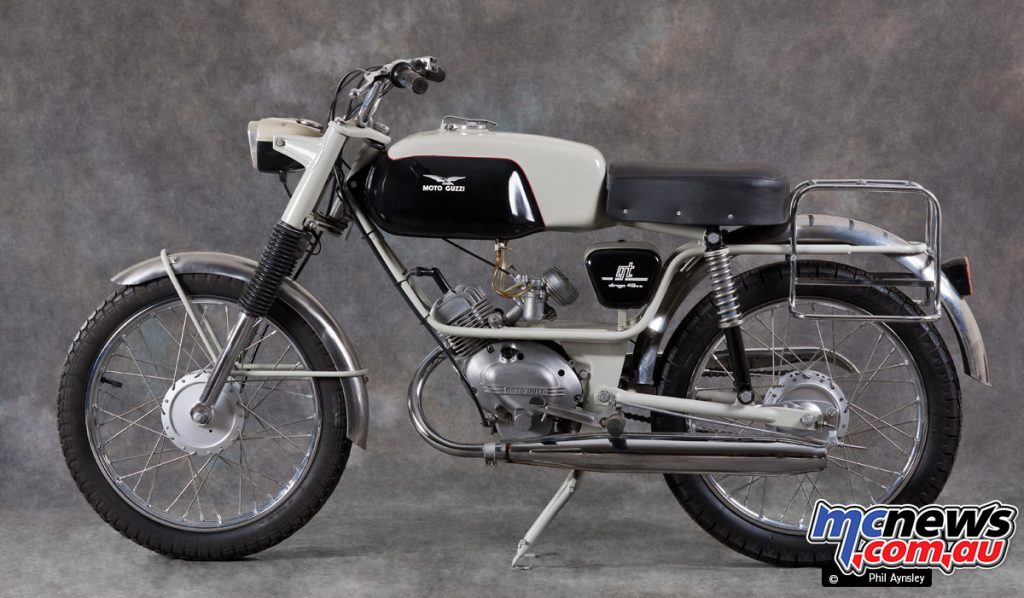
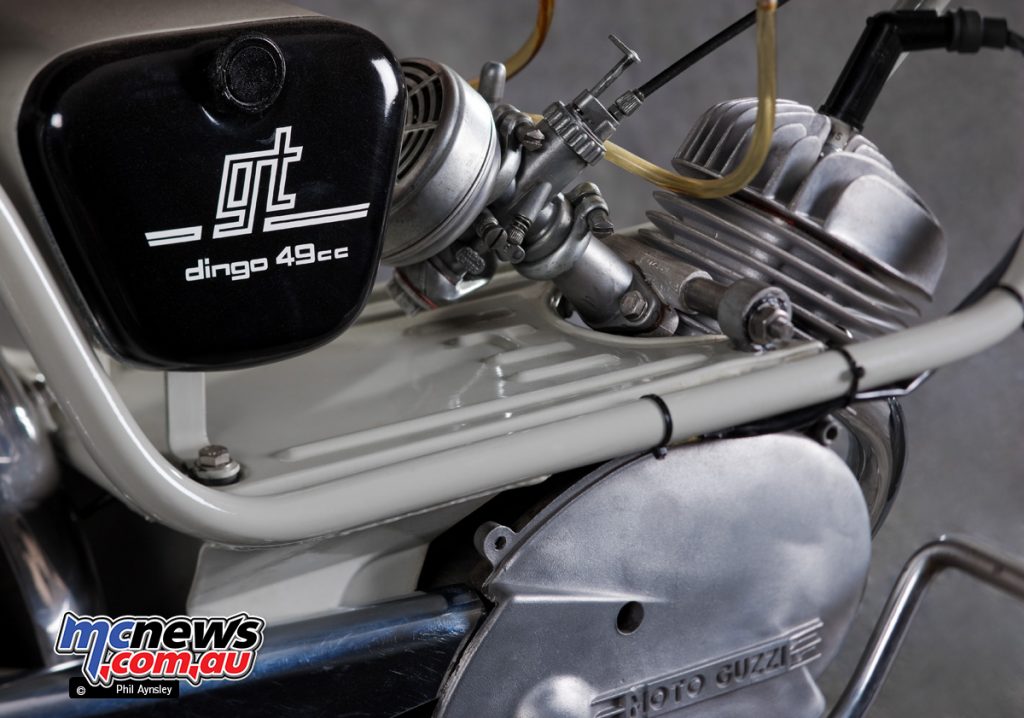
In 1963 the 49cc Dingo (don’t you wish you could have been present in the factory boardroom beside Lake Como when that name was chosen?), was introduced as a twist-grip controlled three-speed, pressed steel frame moped with 16-inch wheels.
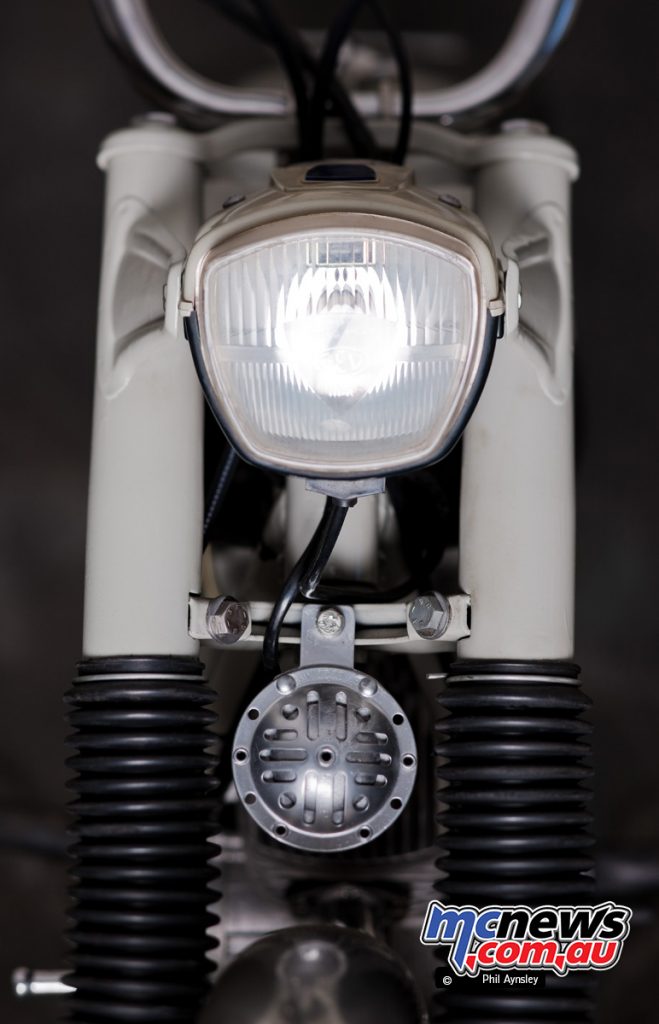
Like the Guzzino the motor was designed by Antonio Micucci, who was obviously the go-to man at the factory if you needed a two-stroke! The Dingo evolved over the years through several models including the 1966 GT version seen here.
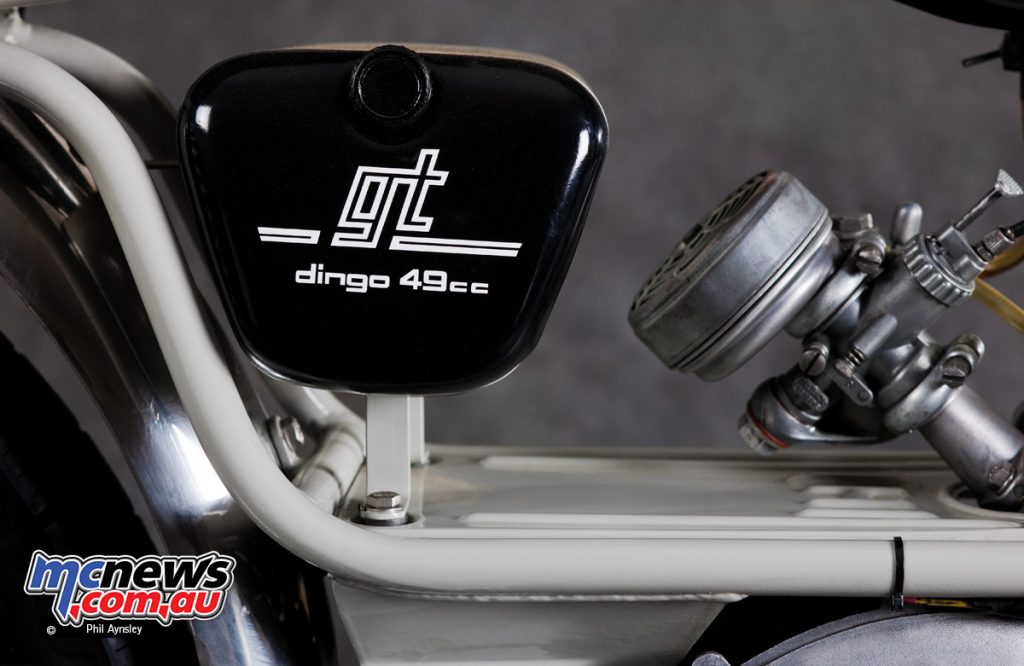
It was a proper motorcycle, with the pedals dispensed with, a four-speed foot operated gearbox, a tubular frame and 18-inch wheels. Output was 1.7 hp at 6000 rpm.
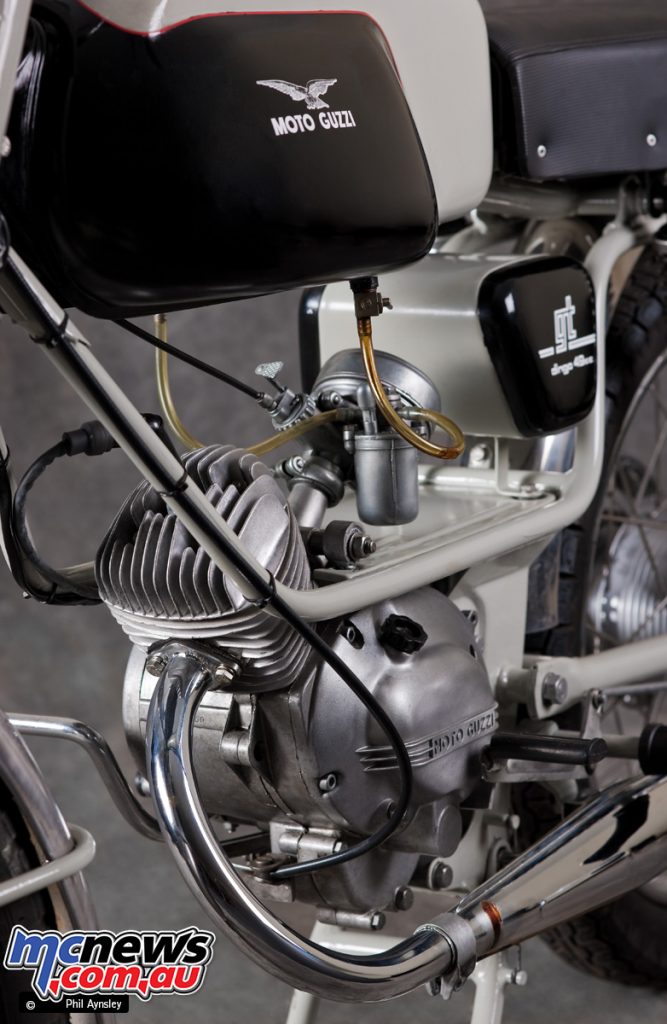
An advanced 50 cc parallel-twin two-stroke prototype was displayed at the Milan Show in 1975 which used the same chassis as the GT. Other Dingo models included the Cross dirt bike and MM automatic. In all 12 different models were built from 1963 until 1976. They were also produced under licence in Spain.
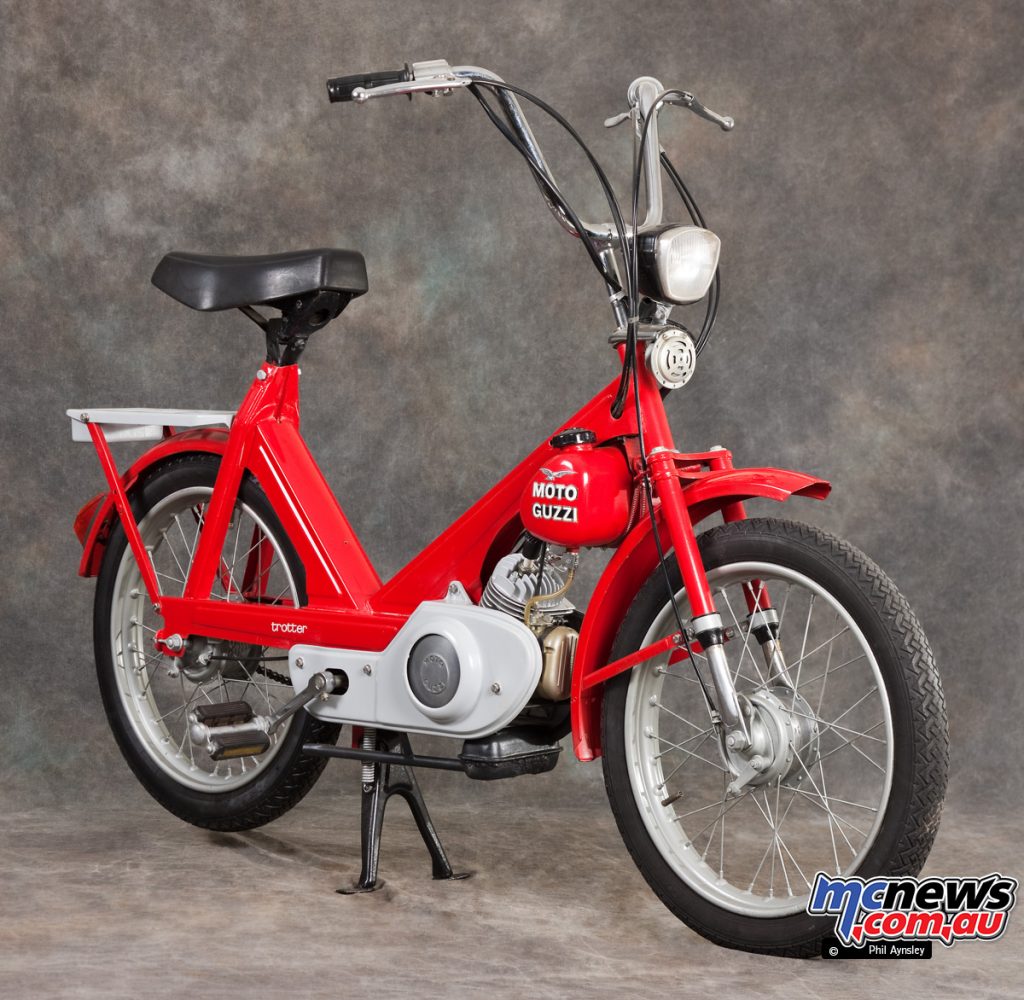
The Trotter moped was an even more basic machine that harked back to the Guzzino days, at least in concept. It was introduced in 1966 and was powered (if that’s the word) by a 1.2 hp 40 cc two-stroke that used a twist grip two-speed gearbox, basic pressed-steel frame and 1- inch wheels. The carburettor was fitted to the front of the motor.
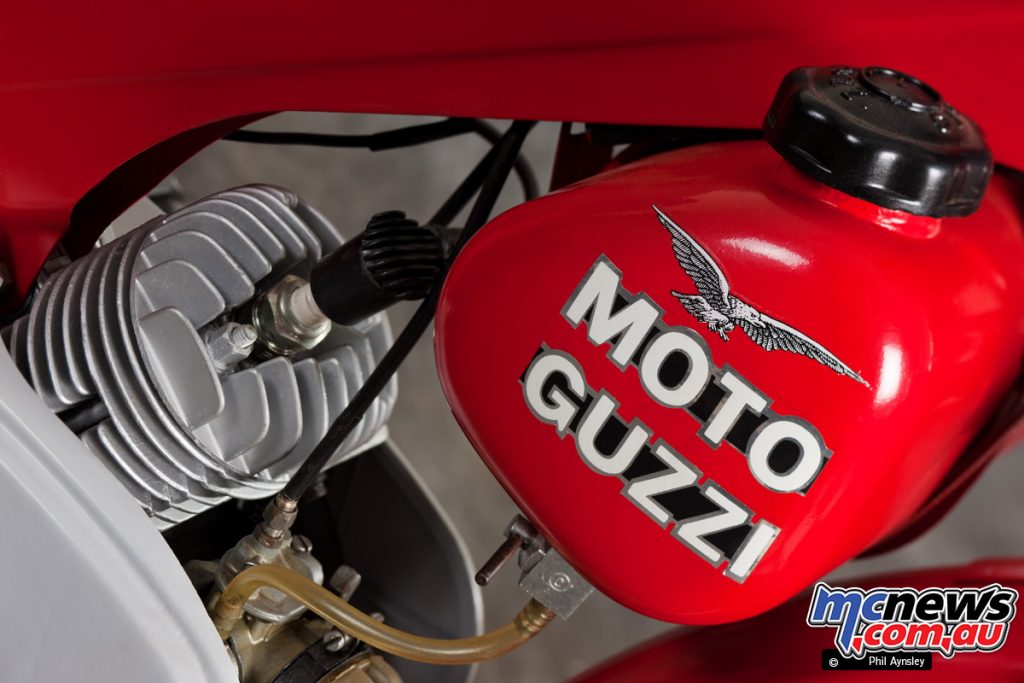
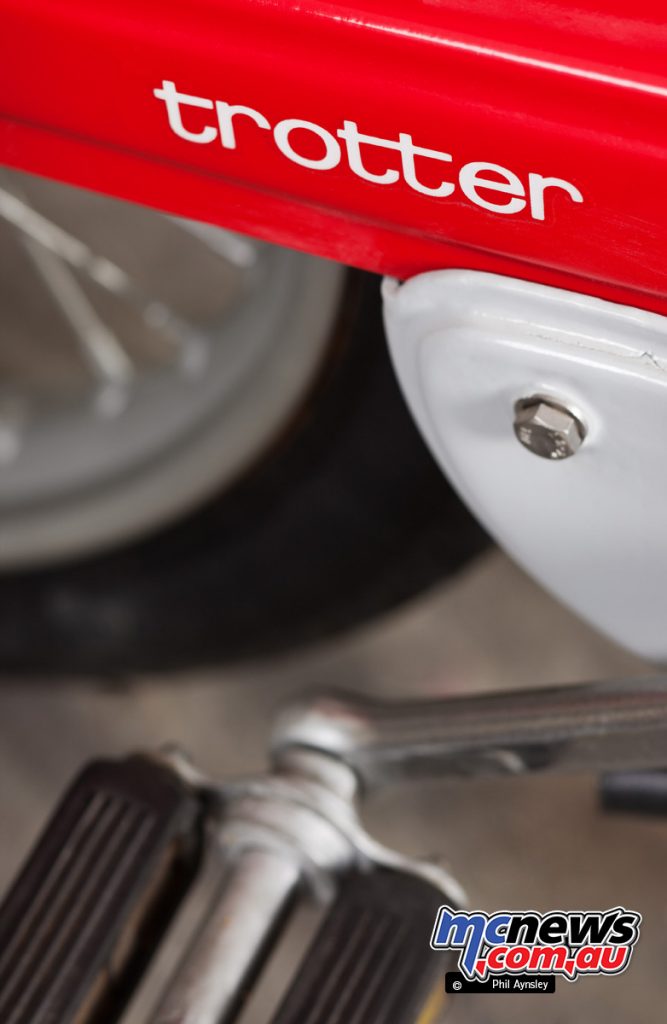
The bike I photographed here is a 1968 Trotter Super version which benefited from being fitted with telescopic forks. From late 1969 the range received a major overhaul with the motor being redesigned, receiving an 8 cc capacity increase, a V-belt primary drive and horizontal cylinder.
